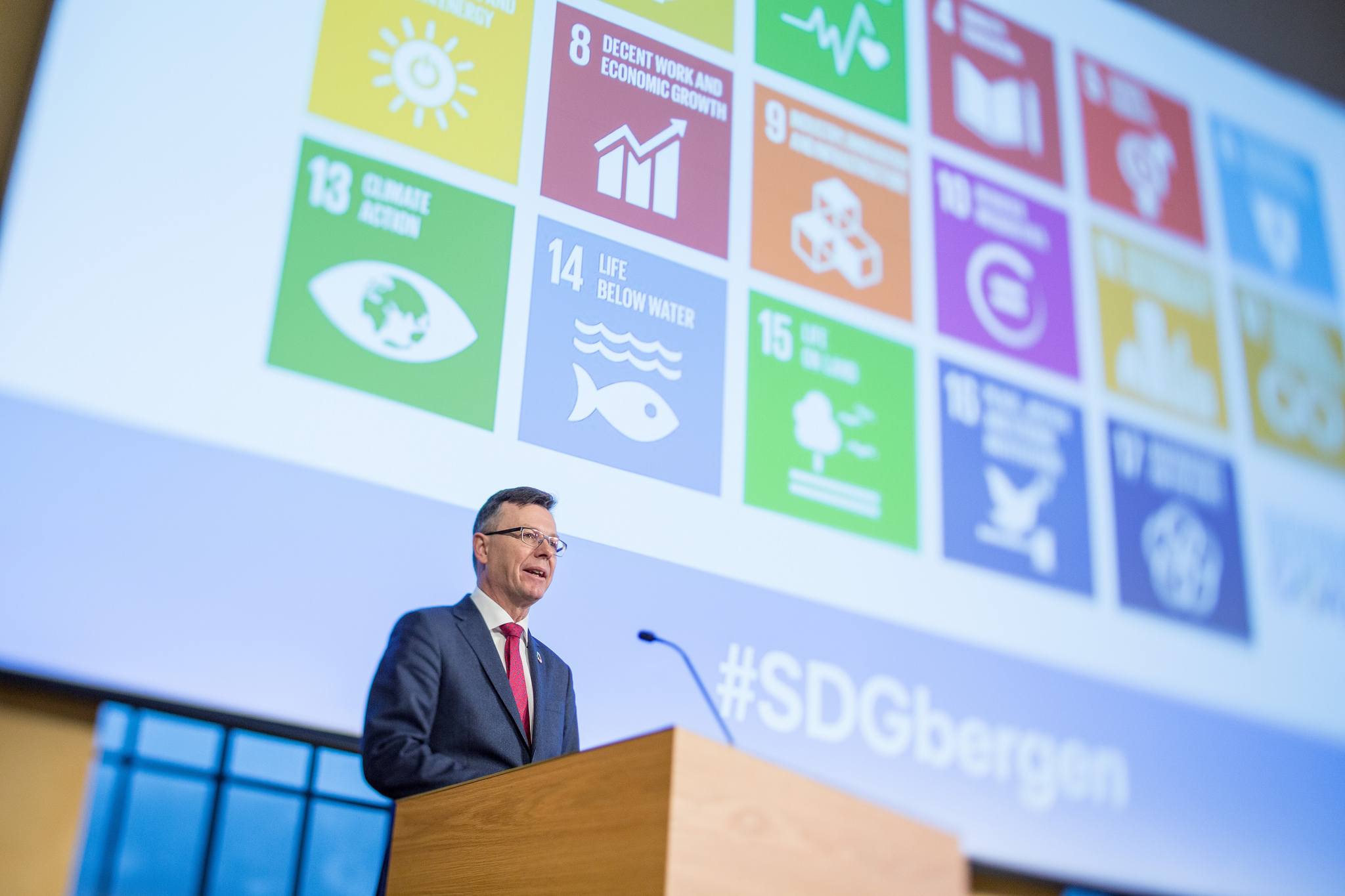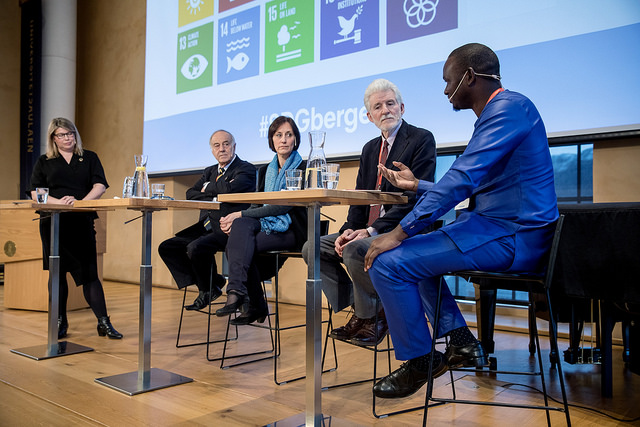
WUN member, The University of Bergen (UiB), will be climate-neutral by 2030 thanks to a commitment to sustainability announced at the first SDG Conference Bergen held in February 2018.
UiB has also committed to taking national leadership in Norway’s academia for SDG-related activities, which includes hosting an annual conference on the UN Sustainable Development Goals (SDG).
“The ambition is to keep the discussion going continuously,” said UiB Vice-Rector for Global Affairs Annelin Eriksen, “not the least to raise awareness in the university sector on how to provide input to government and international organisations on the science to underpin the SDGs.”
More than 290 people took part in the two-day Bergen conference, hosted by UiB in cooperation with Norway’s Ministry of Foreign Affairs and the Ministry of Education and Research.
Representatives from the university and research sector in Norway interacted with politicians, civil servants, industry and NGOs in five plenary sessions and related workshops to widen the cooperation needed to reach SDG targets.
UiB’s Rector, Dag Rune Olsen, said only broad interdisciplinary research and education could add weight to achieving the 17 SDGs, adding that he believed future conferences in Bergen would provide an important arena for debate about the UN’s 2030 Agenda.
Professor Olsen will be a key speaker at the WUN Conference and AGM in Perth in May, offering insights into how universities can help drive national approaches to the SDGs – which in UiB’s case involves being a science diplomacy adviser to Norwegian authorities.
WUN’s Executive Director, Professor John Hearn, was a lead speaker in the Bergen conference. He gave examples how WUN, with the University of Bergen, could bring a global view and evidence to the specific knowledge gaps obstructing the SDGs.
He agreed with Norwegian Prime Minister Erna Solberg’s view that harnessing the resources of universities, academia and researchers would be pivotal in moving ahead at the pace needed to break down the barriers to achieve the SDGs.
“The international research universities are essential to achieving the SDGs. The SDG targets will also help Universities to reform in research, teaching and structure to build the people, science, technologies and social dimensions required for success.”

Panel discussion with WUN’s Executive Director, Professor John Hearn (second on the left).
Tweets, videos and Facebook posts helped convey the diversity of conference perspectives, drawn from myriad sources. Topics included: universities using their purchasing power to reduce their ecological footprints; students raising awareness of toxic mining waste in Norwegian fjords; business and industry broaching ocean troubles through new collaborations; and using the SDGs as the major frame of reference when developing new strategic plans for universities.
“There is nothing more important for humanity than the Sustainable Development Goals,” said UN Special Envoy for the Ocean Peter Thomson, whose full message can be viewed here. Other speakers reinforced the role universities play as knowledge creators, implementers of the SDGs, and as role models (as they transform themselves in line with the SDGs), all seen as crucial to helping the world make the fundamental changes necessitated by the 2030 Agenda.
As the conference in Bergen drew to a close, @UNDPNorway congratulated UiB in a Tweet that looked eagerly towards the future: “#sdgbergen very successful. Interesting & forward-looking discussions on how universities can integrate 2030 Agenda in research and teaching. Already looking forward to next year’s conf, which should focus even more on the hows.”
– To register for the WUN Conference and AGM in Perth (20-25 May), and to hear insights from UiB’s Rector Dag Rune Olsen, visit this website.
Photo copyright: Eivind Senneset for University of Bergen
